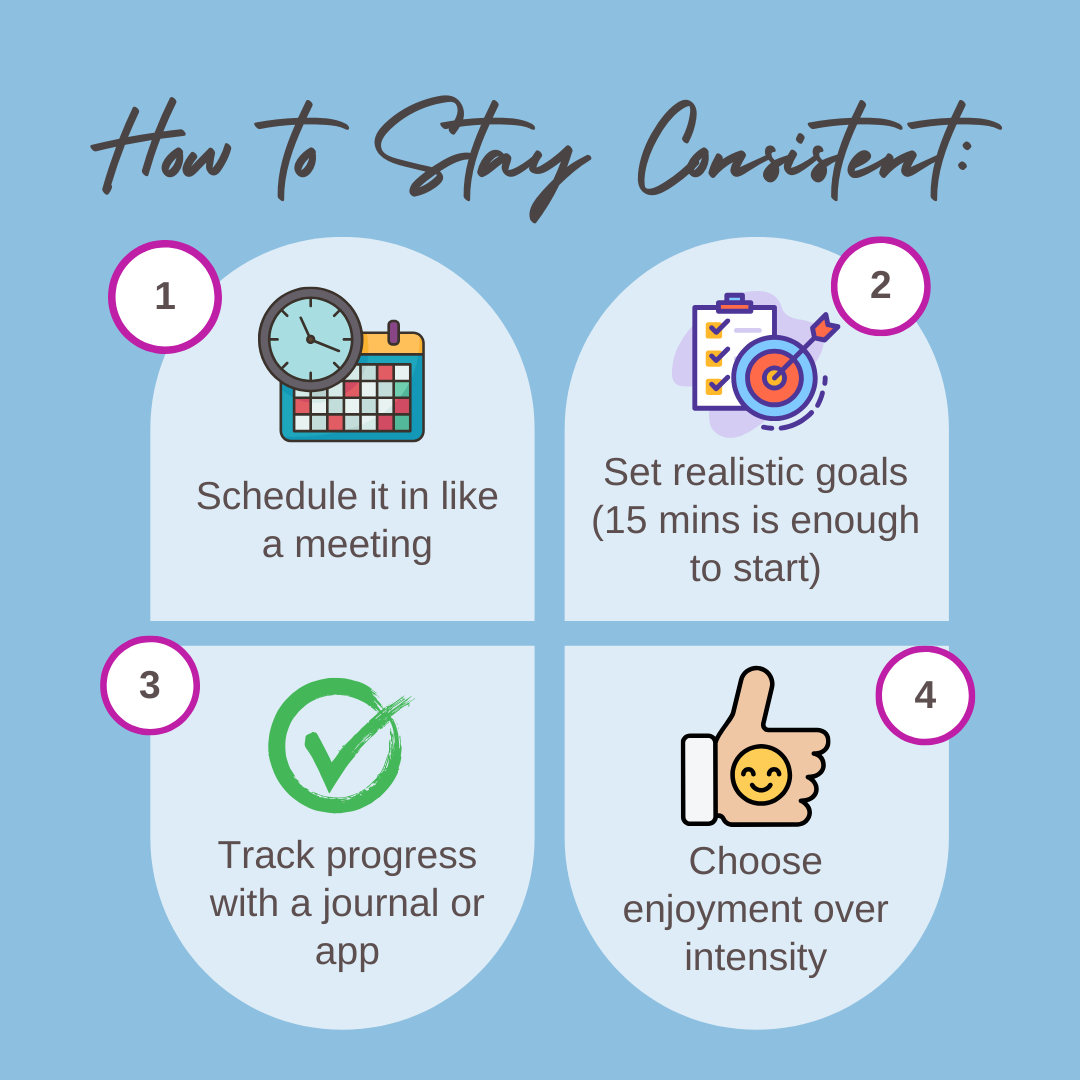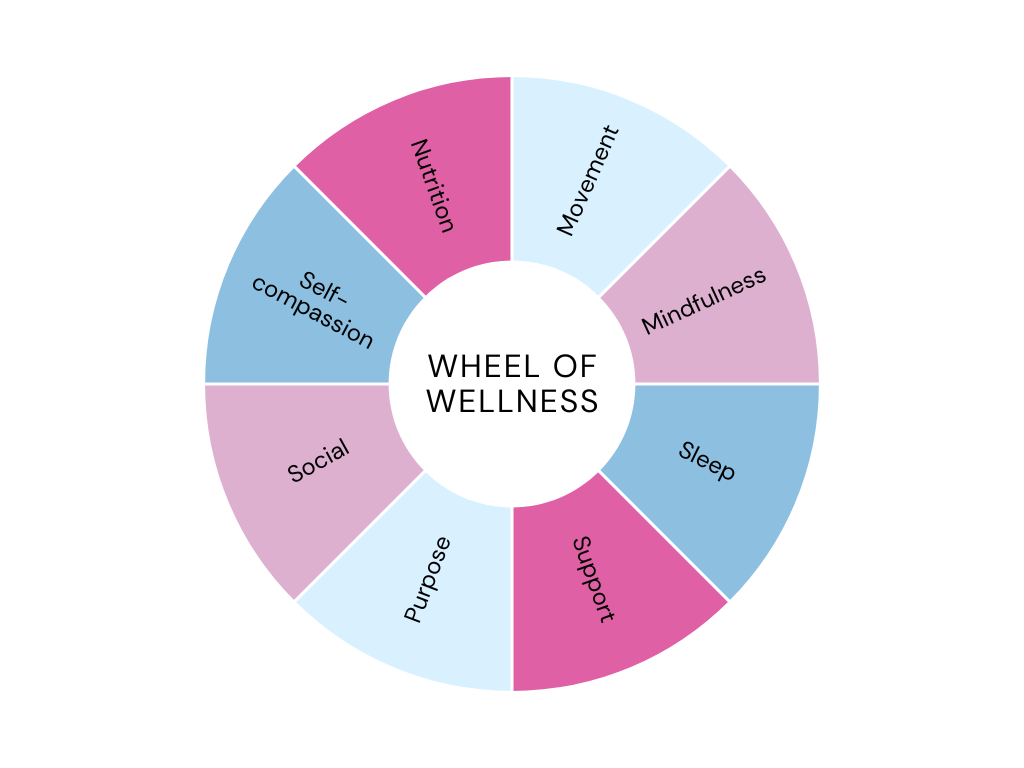Last Updated:
July 14th, 2025
Recovery isn’t just about abstaining from substances, it’s about rebuilding a life that sustains your wellbeing. Nutrition, movement and mindfulness are the three pillars of healthy living post-rehab. These elements not only help you stay sober but also enhance your physical and emotional resilience, giving you the foundation for long-term success.
Section 1: Nutrition in Recovery
Replenish and Rebuild
Addiction depletes your body. Nutritional healing helps replenish what’s been lost, restoring energy, stabilising mood, and strengthening the immune system.
Why Nutrition Matters in Recovery
Substances like alcohol and drugs:
- Disrupt nutrient absorption
- Affect appetite and digestion
- Increase inflammation
- Impair liver and kidney function
Restoring balance begins with food. A nourishing, consistent diet supports your brain chemistry, hormone regulation, and emotional stability.
The Recovery Nutrition Framework
- Eat small meals regularly (every 3–4 hours)
- Include slow-releasing carbs (e.g. oats, brown rice, sweet potatoes)
- Probiotics (live yoghurt, sauerkraut, kimchi)
- Prebiotic fibres (onions, garlic, bananas, oats)
- Lean proteins (chicken, turkey, lentils, eggs, fish)
- Healthy fats (olive oil, nuts, seeds, avocado)
- Magnesium (leafy greens, pumpkin seeds)
- Zinc (chickpeas, shellfish, dairy)
- Omega-3 (salmon, flaxseed, walnuts)
- Don’t skip breakfast – stabilises blood sugar and sets the tone for the day
- Hydrate – aim for 2L of water a day
- Minimise sugar – avoid triggering highs and lows
- Limit caffeine – reduces anxiety and promotes better sleep
Get inspired and stay on track by downloading our free meal planner
Section 2: Gentle Exercise
Strengthen Body and Mind
Exercise is more than a physical tool. It can improve sleep, regulate dopamine levels, reduce cravings, and offer natural stress relief.
Exercise Benefits for Recovery:
- Boosts mood through endorphin release
- Improves cardiovascular and muscular health
- Regulates sleep cycles
- Reduces anxiety and depression
- Builds routine and motivation
- Walking – low-impact and highly accessible
- Yoga – aids in stress management and flexibility
- Swimming – eases muscle tension and boosts mood
- Stretching routines – relieves body aches, especially from withdrawal or stress
- Tai Chi or Qigong – meditative movement for grounding and balance
- Light strength training – resistance bands or bodyweight exercises to rebuild confidence and strength
Section 3: Yoga & Mindfulness
Reconnect with Yourself
Recovery involves emotional healing. Mindfulness and yoga provide space for stillness, clarity, and calm. They allow you to process feelings rather than escape them.
The Role of Mindfulness in Recovery
- Teaches you to respond, not react
- Reduces intrusive thoughts and impulsive behaviour
- Builds emotional regulation
- Helps with relapse prevention through awareness
Yoga Styles to Explore:
- Restorative Yoga – deep relaxation, ideal for trauma recovery
- Yin Yoga – long holds, focuses on fascia and emotional release
- Vinyasa – gentle flow with breathwork for grounding
- Trauma-Informed Yoga – safe, choice-based movement
- Down Dog App – custom yoga routines by time, level and focus
- Yoga with Adriene (YouTube) – friendly, inclusive, free
- Try “Yoga for Addiction Recovery” or “Yoga for Anxiety”
- Insight Timer – free app with guided meditations and music
- Headspace / Calm – structured programmes for daily mindfulness
- Recovery Dharma – Buddhist-inspired recovery meditations
The 5 Pillars of Mindfulness in Recovery
Mindfulness is more than just a wellness buzzword, it’s a practical, evidence-based approach to anchoring yourself in sobriety, managing emotional triggers, and fostering long-term inner peace. These five foundational pillars of mindfulness serve as guiding principles in addiction recovery, helping individuals cultivate resilience, clarity, and purpose as they navigate the path to lasting healing.
How it helps in recovery:
- Prevents overwhelming thoughts by focusing on what’s within your control now.
- Enhances your ability to respond rather than react to triggers.
- Encourages conscious choices over impulsive behaviour.
Practice tip: Try the 5-4-3-2-1 grounding technique to root yourself in your senses when you feel emotionally flooded.
How it helps in recovery:
- Reduces physiological stress, especially during cravings or flashbacks.
- Enhances emotional regulation and reduces impulsivity.
- Builds mental space between urge and action.
Practice tip: Use box breathing (inhale 4, hold 4, exhale 4, hold 4) to reduce anxiety in high-risk moments.
How it helps in recovery:
- Reduces guilt and shame, which are common relapse triggers.
- Helps break the cycle of “all-or-nothing” thinking.
- Supports honest self-reflection without fear or denial.
Practice tip: When negative self-talk arises, ask yourself, “Would I say this to someone I care about?”
How it helps in recovery:
- Reduces internal conflict and emotional avoidance.
- Encourages responsibility without blame or victimhood.
- Fosters peace with the past and patience with the present.
Practice tip: Use affirmations like “I accept what I cannot change, and I act on what I can” to reframe difficult emotions.
How it helps in recovery:
- Improves mood and overall wellbeing.
- Strengthens motivation and optimism.
- Builds a positive foundation for long-term sobriety.
Practice tip: Keep a gratitude journal and write down three things each day, no matter how small, that you’re thankful for.
Together, these five pillars offer a powerful framework for rebuilding a meaningful life after addiction. Mindfulness is not about becoming someone new, it’s about returning to who you were before addiction clouded your vision. By practicing these principles daily, individuals in recovery can cultivate greater self-awareness, emotional balance, and ultimately, a stronger sense of freedom.
Section 4: Recovery-Friendly Routines
Creating Structure That Sticks
In recovery, routine isn’t boring, it’s a lifeline. Without the chaos of addiction, the sudden quiet can feel disorienting. That’s where structure steps in. Establishing a recovery-friendly routine provides predictability, reduces anxiety, and fosters a sense of purpose. It’s not about micromanaging your life; it’s about reclaiming it, one intentional habit at a time.
Why Routine Matters in Recovery
When you’re no longer living by the next high, the brain needs new anchors. Routine helps regulate your body’s internal clock (circadian rhythm), supports emotional stability, and provides consistent opportunities to reinforce recovery behaviours.
Benefits include:
- Reduced relapse risk: Idle time is often a trigger. A daily schedule fills your day with purposeful activity.
- Improved mental health: Regular routines lower stress, improve sleep, and provide emotional predictability.
- Strengthened identity: Healthy habits reinforce your new, sober identity and allow you to track progress.
- Built-in accountability: With structure, it’s easier to honour your commitments to yourself and others.
Stay organised your way, download our scheduler templates and discover the perfect tracker for your routine.
Section 5: Healing Beyond the Body
Sleep, Hobbies and Social Connection
Recovery doesn’t end with physical detox or even emotional healing—it evolves into a lifelong journey of reconnection: with yourself, with others, and with the world around you. Beyond nutrition and fitness, there are vital lifestyle practices that support emotional wellbeing, purpose, and joy, without which long-term recovery can feel hollow or unsustainable.
Here are just 3 meaningful ways to heal beyond the body:
Why it matters:
- Sleep helps regulate mood, manage cravings, and restore brain chemistry
- It supports immune function and cognitive clarity
- Poor sleep increases risk of relapse and emotional dysregulation
Simple habits for better sleep:
- Stick to a consistent sleep-wake cycle (even on weekends)
- Limit screen time an hour before bed
- Create a calming routine: warm bath, soft music, light reading
- Avoid caffeine after 2pm and heavy meals at night
- Consider natural aids like chamomile tea or sleep meditations
Try this:
- Journaling each morning or night
- Learning an instrument or returning to one you loved pre-addiction
- Adult colouring books (especially for anxiety)
- Watercolour painting or clay sculpture for tactile mindfulness
- Writing poetry or letters to your past/future self
You don’t have to be ‘good’, you just have to begin.
Grounding nature practices:
- Walking barefoot on grass or sand (“earthing”)
- Forest bathing (spending quiet time in wooded areas)
- Gardening or growing herbs indoors
- Cloud watching, birdwatching, or star gazing
Make it part of your routine:
- Take your morning coffee or journal outside
- Listen to nature sounds before sleep
- Aim for a weekly walk in a new green space
This Is the Start of a Healthier You
Recovery is about more than eliminating the addiction; it’s about healing as a whole, physically and emotionally. Embracing a healthy lifestyle will help you feel stronger, think clearer, and stay connected to your “why.” Small, intentional steps taken each day can compound into lasting change.
And remember: you don’t have to do this alone. UKAT is always here to offer a helping hand or a listening ear.




